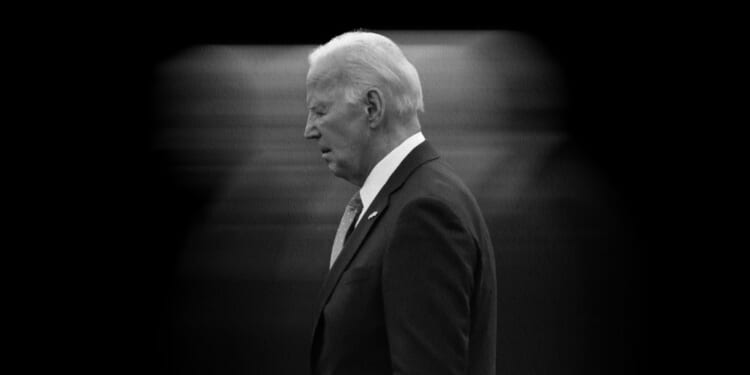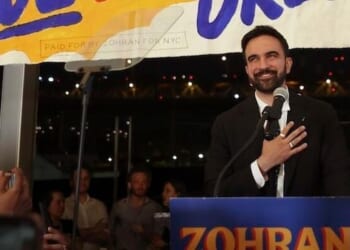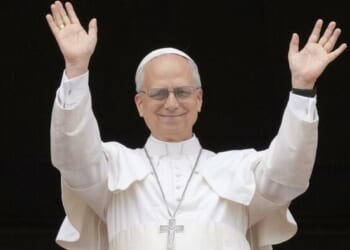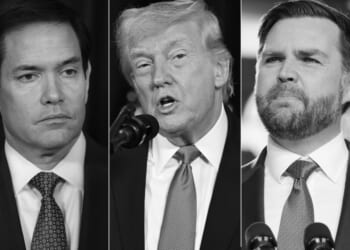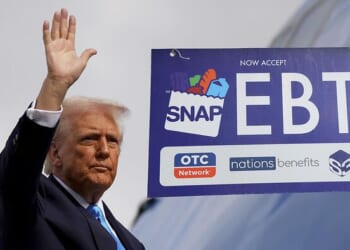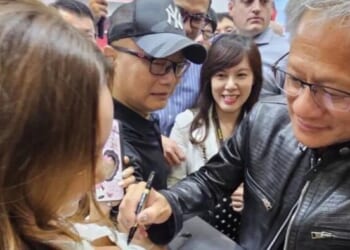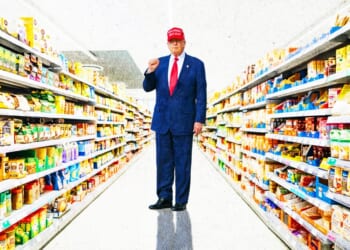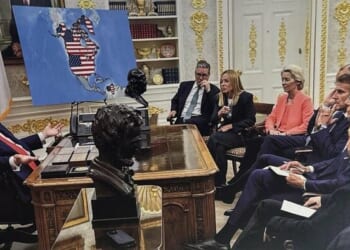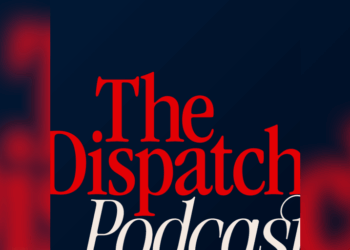Editor’s Note: This piece is adapted from Retribution: Donald Trump and the Campaign That Changed America by Jonathan Karl, which will be released on October 28. Declan Garvey, The Dispatch’s executive editor, worked with Karl on the book.
When Joe Biden awoke in Rehoboth Beach on the afternoon of Friday, July 19, he told his inner circle he wanted to convene a meeting the following day at his house there with his most trusted aides: senior advisers Mike Donilon and Steve Ricchetti, deputy chief of staff Annie Tomasini, his son Hunter (who would join from California via speakerphone), and the first lady. Donilon and Ricchetti knew they would be asked to provide an update on the state of the campaign, including the latest polling and fundraising numbers. There wasn’t much good news to share.
Late Friday evening, Biden chief of staff Jeffrey Zients—who was not invited to take part in the Saturday meeting—received a call from Sen. Patty Murray of Washington, the longest-serving Democrat in the Senate. Murray had not been among those publicly criticizing Biden and calling for a change at the top of the ticket, but she bluntly informed Zients that if the president did not end his campaign on his own, she would release a letter the following week publicly calling on him to do so. And her signature wouldn’t be the only one on the letter; as many as 35 of her Democratic colleagues in the Senate were expected to sign on as well.
The decision to end the campaign may have been Biden’s alone. But in practice, as the president battled the coronavirus in Rehoboth Beach, it was already over. Party leaders had abandoned him. The money was drying up. An overwhelming majority of voters believed he was in no condition to serve another four years as president, as did many of his longtime allies in Congress.
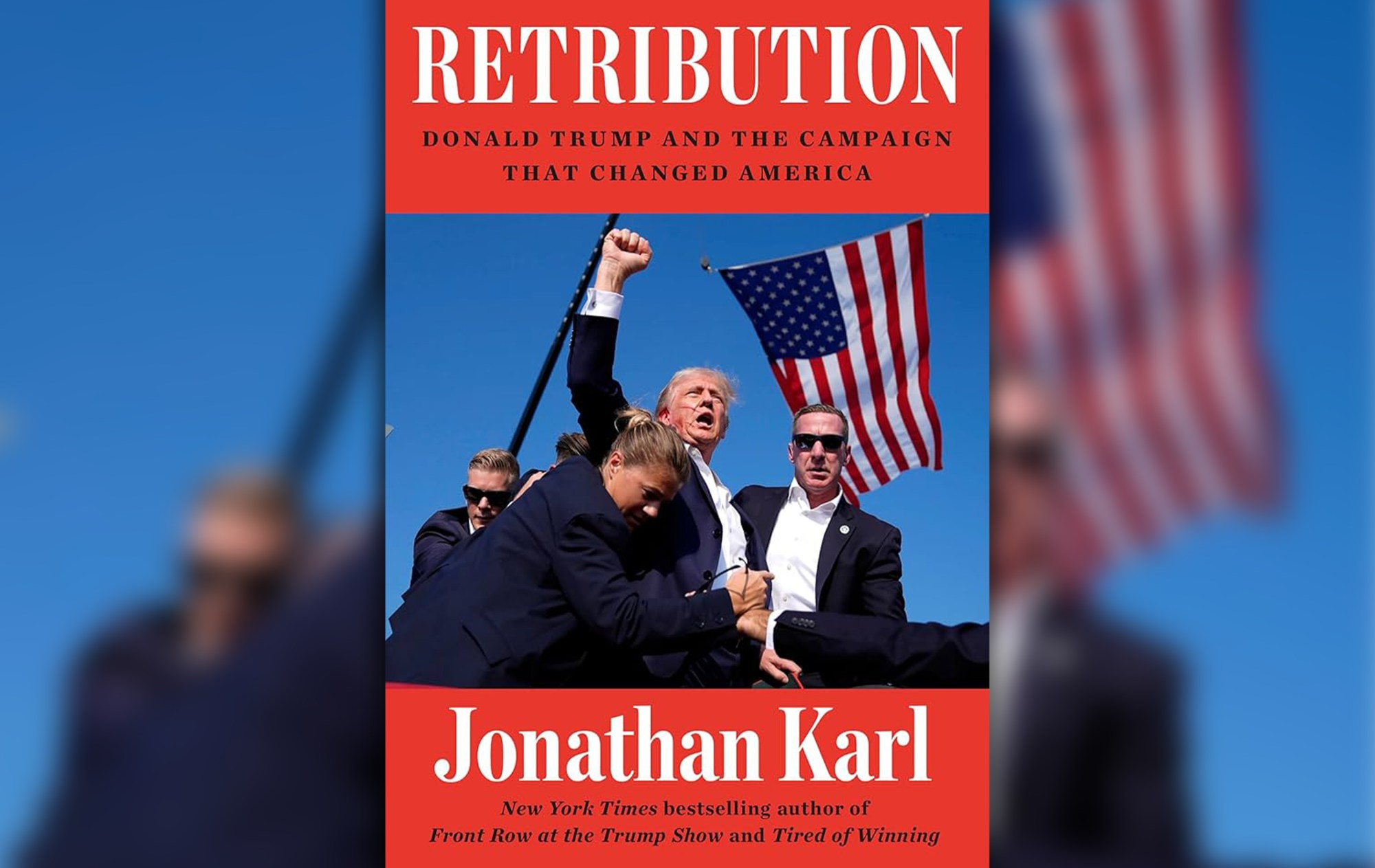
As Biden declined—in both his health and his political standing—he became increasingly isolated. His direct contact with key Democrats in Congress had been minimal since his disastrous debate with Trump and had been virtually nonexistent since the previous Saturday, when Democratic Senate Leader Chuck Schumer traveled to Delaware to tell him that even Democratic senators, most of them, believed that Biden would lose if he stayed in the race and he would bring the party down with him. By the time he got sick with COVID in Las Vegas, Biden had only minimal contact with the people running his campaign in Delaware and with the senior aides in the West Wing running his White House. The core group regularly talking to him had shrunk, essentially, to those who were with him in Rehoboth—Tomasini, Ricchetti, Donilon—along with policy adviser Bruce Reed. The ever-tightening Biden inner circle was made up of people deeply loyal to him who, despite what was obvious to just about everybody else, believed he could still win and serve another four years. Now even they were coming to terms with how bad things really were for Biden.
On Friday evening, as Ricchetti was preparing for the meeting with Biden the following day, he placed a call to Donna Brazile, the former chair of the Democratic National Committee. Brazile had been a stalwart Biden supporter, pushing back for weeks against those in the party who were suggesting he should drop out. But like everyone else, she sensed things were changing.
Ricchetti told Brazile that Biden would be making a final decision about his campaign—a real final decision—in the coming days. Given her role as a member of the committee controlling the credentialing of the party’s delegates at the upcoming Democratic National Convention, Brazile had a firm grasp on the rules and had influence with the various activist groups in the party that would play a major role in the event of a contested convention.
Ricchetti asked Brazile to give him a reality check on Biden’s support among the delegates and a refresher on the rules governing the process. Was there any sign of slipping? How many of the delegates were committed? Could somebody successfully challenge Biden at the convention? And finally: If Biden were to drop out, what would the procedure be for nominating his replacement?
Brazile answered Ricchetti’s questions and then got right to work preparing for the possibility of Biden dropping out. Together with Bakari Sellers, a Democratic official from South Carolina, she began calling state party leaders and essentially every influential black leader in the party. Brazile’s message to voting delegates was direct: You need to stand with Biden as long as he’s in the race. But if he drops out, we all need to unite behind Kamala Harris.
In other words, the effort to secure the nomination for Harris had already begun.
But the vice president herself was not involved in that effort. Although she was the obvious heir apparent, Harris had not so much as hinted—publicly or privately—that Biden should drop out of the race as calls for him to do so grew louder. She made that decision out of loyalty to the president, sure, but also out of self-interest. Harris and her top advisers knew that if Biden did decide to end his campaign, his endorsement would be the difference between an ugly battle for the nomination at the convention and a simple coronation of his vice president. Even behind-the-scenes whispers could imperil her chances of securing a spot at the top of the ticket.
So for those fateful three weeks in July, Harris kept her head down, remaining loyal to Biden in the expectation that her loyalty would be rewarded down the line. But that devotion had its limits.
Harris did not join the chorus of Democratic voices questioning Biden’s faculties, but she was not proactively defending him, either. Campaign leadership asked her at one point to call members of Congress to shore up Biden’s support among nervous Democrats, but two Harris aides later told me that she declined: Calls to lawmakers, Harris believed, could be misinterpreted as the early stages of an effort to secure the nomination for herself. If she called Democratic members, those members could later disclose that they had spoken to her and misrepresent the purpose of the call.
“You’re still the motherf—ing president of the United States. You’re still the leader of this party. Not President Obama, not Speaker Pelosi, not Hakeem Jeffries, not Chuck Schumer.”
Hunter Biden, on what he told his father
As for the president himself, Biden still had been speaking to almost no one outside his innermost circle in those fateful final days. Barack Obama had reached out to him, as had Nancy Pelosi—multiple times. He ignored their calls. On July 18, political pundit Mark Halperin reported that Biden was working with historian Jon Meacham to draft a speech announcing his withdrawal from the race, but the scoop was wrong (as was Halperin’s reporting that Biden would not endorse Kamala Harris). Meacham had been a friend, an adviser, and an occasional speechwriter for Biden since he launched his 2020 presidential campaign, but the president hadn’t been returning his calls for days, either.
As Biden’s decision-making process dragged out, a perception began to emerge—including among some senior White House staff—that the president’s son Hunter and wife, Jill, were behind his refusal to step aside. “Hunter Biden intensely wants his father to stay in the race,” NBC News reported in early July. “And Jill Biden has been adamant that he wouldn’t give up.”
In one sense, that was accurate: The president’s family did not want to let other Democrats drive him out of the race. But at the same time, Hunter insisted that neither he nor Jill Biden were urging President Biden to stay in the race against his own will.
“Mom just kept saying, ‘Joe, only you can make this decision,’” Hunter remembered. “I kept saying to him, ‘There’s one thing everybody’s got to remember: You’re still the motherf—ing president of the United States. You’re still the leader of this party. Not President Obama, not Speaker Pelosi, not Hakeem Jeffries, not Chuck Schumer, and certainly not the pundit class. You’re the one that gets to make this decision.’”
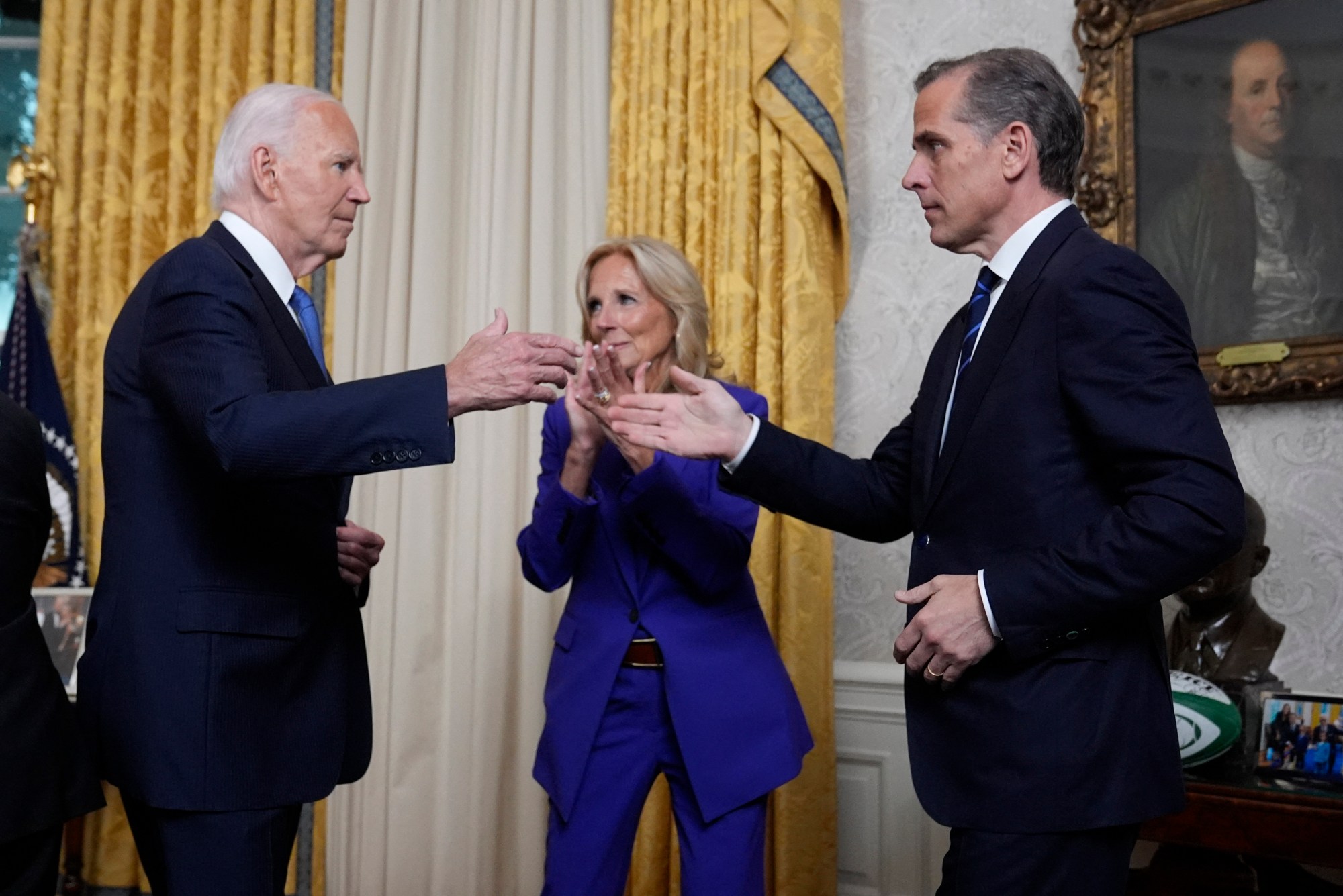
Before Biden’s illness forced him from the campaign trail, his family and closest aides still believed that he could weather the storm—in part because he’d done so before. In fact, Joe Biden’s entire political career had been riddled with personal and political setbacks, and he’d managed to defy the odds and become the president of the United States. He nearly quit politics in 1972 when his family was hit with tragedy, but he forged ahead and became one of the most influential senators of his time. He had ended his first presidential campaign in disgrace following a plagiarism scandal. He ran for president again and lost again 20 years later, but went on to become a two-term vice president. In 2020, he ran yet again and came in fourth place in the Iowa caucuses and fifth in the New Hampshire primary but still managed to bounce back and win the nomination and the presidency.
“The sense was that this is just another of the, I don’t know, dozen times in which we were counted out for dead,” Hunter later recalled. “How many storms have we weathered? Whether just purely political, the political combined with personal, or the purely personal.” Those experiences, he said, led to a sense of calm within the family. They didn’t feel an urgency to drop out of the race or even to rush to a decision. “We don’t panic,” he said. “Not by virtue of that we’re some kind of superhuman family. It’s just, we’ve got a lot of f—ing practice.”
One of Biden’s closest advisers also referenced the president’s resilience as a reason why, in retrospect, his inner circle was blind to just how deep of a hole he had dug for himself. “We just need the next South Carolina,” this person remembered thinking, referring to the state whose Democratic primary voters, after a game-changing endorsement from Rep. Jim Clyburn, salvaged Biden’s 2020 campaign and propelled him to the White House.
By the time Biden sat down with Mike Donilon and Steve Ricchetti on the porch of his Rehoboth Beach home on Saturday, July 20, that sense of invincibility was gone. Jill Biden, Annie Tomasini, and Anthony Bernal, the first lady’s chief of staff, joined for part of the meeting, and Hunter dialed in on speakerphone. The prospect of ending the campaign wasn’t explicitly on the agenda, but as Hunter later told me, “I kind of knew.”
Donilon kicked off the discussion with an overview of the polling.
“I told him exactly what his own pollsters were saying, and they were saying there was no chance that he could win. I told him that,” Donilon later told me. He also said to Biden that a “substantial portion” of Democratic senators wanted him out of the race and so did House Democrats, including Pelosi, who, Donilon said, was leading the effort to push Biden out. But even with that grim set of facts, Donilon made the case that Biden should stay in the race.
“I also said to him that it was my view that he was still the best candidate, the best Democrat to win, that he could go forward, but that he needed to understand the kind of race we would have,” Donilon said. It would be a race where Biden would be running without many of his big financial backers, without the support of the party leadership, and with a large number of people calling on him to drop out.
“But I felt he could take it to the convention,” Donilon told me. “I felt that he could win it at the convention, and that, in my view, while I thought the vice president could win, I still believe that he was the best Democrat to beat Trump.”
Ricchetti spoke about the growing opposition Biden was facing within his own party, especially on Capitol Hill. He told Biden about the letter Sen. Patty Murray was preparing to release in the coming days calling on him to drop out, noting that an overwhelming majority of Democratic senators were likely to sign it. Ricchetti said there was one bright spot: The party delegates were still standing by Biden, for the most part, and the president’s advisers believed he’d be able to fend off any challenge at the convention.
“I told him exactly what his own pollsters were saying, and they were saying there was no chance that he could win.”
Mike Donilon, Senior Adviser to President Biden
Biden sat in his chair, wearing a mask due to his illness, and took it all in. Had he not contracted COVID-19 days earlier, Biden very well could have tried to stick it out. After all, his family was united behind him, and his advisers were still telling him he could win. But getting as sick as he did in Las Vegas had forced his hand.
“God was giving us some signals,” one of the advisers with him in Rehoboth later told me. “And then He slapped him in the face with COVID.”
After his advisers concluded their presentation, Biden sat quietly for a few moments before asking a question of the group: If he did decide to drop out, how should he do it? He instructed Donilon and Ricchetti to draft a statement he could release—if he went through with his decision to call it quits—and the group broke for dinner.
When everyone returned to the porch a couple of hours later, Biden reviewed the draft statement, and the discussion soon turned to how his decision should be announced. He was still too sick to deliver a televised address, so the group resolved to release a written statement and follow up with remarks to the nation a few days later.
Biden made clear he would endorse Kamala Harris as his replacement atop the ticket, but that endorsement, the group decided, would come later. Dropping out of the race, his advisers reasoned, was a historic decision—one that needed to stand on its own.
The president seemed to have reached his conclusion. But everyone agreed to sleep on it before officially pulling the plug on his campaign.
The group reconvened the following morning at 11 a.m., and Biden informed them his decision was final: He would announce his withdrawal from the race that afternoon.
But before Biden could execute the plan, he had to make an important call. When National Security Adviser Jake Sullivan patched through a call from the prime minister of Slovenia—to discuss a pending prisoner exchange between Russia, several European countries, and the United States that would include the release of Wall Street Journal reporter Evan Gershkovich and former Marine Paul Whelan 10 days later—Sullivan had no idea Biden had just decided to end his campaign.
After hanging up with the Slovenian prime minister, Biden called four people to let them know what he had decided. The first call he made was to White House chief of staff Jeff Zients; the second was to his campaign chair, Jen O’Malley Dillon. Only after those calls did he reach out to Vice President Harris.
“Are you sure you want to do this?” she asked. The decision was his alone, she reminded him, and nobody could force him out of the race.
Biden told her his mind was made up. He was dropping out, and the decision had been all his.
At that point, Harris made a request that came across more like a demand: He needed to endorse her. “Of course,” Biden responded. He promised his endorsement would come in the next day or two.
No, Harris insisted. It needed to come immediately. Otherwise, she argued, Biden would be opening the door to an ugly fight for the nomination.
Biden agreed to discuss her concerns with his advisers and call her back. The inner circle was adamant that Biden’s initial statement stand on its own but agreed his endorsement of Harris could come shortly thereafter.
Before talking to anybody else at the White House or his campaign, Biden called to give one more person an early heads-up: Rep. Jim Clyburn of South Carolina, whose endorsement saved Biden’s campaign four years earlier.
At 1:45 p.m., after saying goodbye to Clyburn, Biden convened a call with his senior staff at the White House and the campaign—most of whom had been kept entirely in the dark about his deliberations in Rehoboth over the weekend—to let them know about his decision. But before he could finish speaking, his statement was posted on X for the world to see. The news was out.
“It has been the greatest honor of my life to serve as your President,” read the statement, which was published on Elon Musk’s X rather than through official White House channels. “And while it has been my intention to seek reelection, I believe it is in the best interest of my party and the country for me to stand down and to focus solely on fulfilling my duties as President for the remainder of my term.”
Biden touted what he viewed as his administration’s biggest accomplishments—making “historic investments” in infrastructure, passing gun safety legislation for the first time in three decades, overcoming the pandemic and accompanying economic crisis, and strengthening the United States’ global alliances—and expressed gratitude to Kamala Harris “for being an extraordinary partner in all this work.”
The absence of an endorsement sparked immediate speculation that he would not weigh in on the race to succeed him.
But 27 minutes later, a second post was published from Biden’s X account. “My fellow Democrats,” it began. “My very first decision as the party nominee in 2020 was to pick Kamala Harris as my Vice President. And it’s been the best decision I’ve made. Today I want to offer my full support and endorsement for Kamala to be the nominee of our party this year. Democrats—it’s time to come together and beat Trump. Let’s do this.”
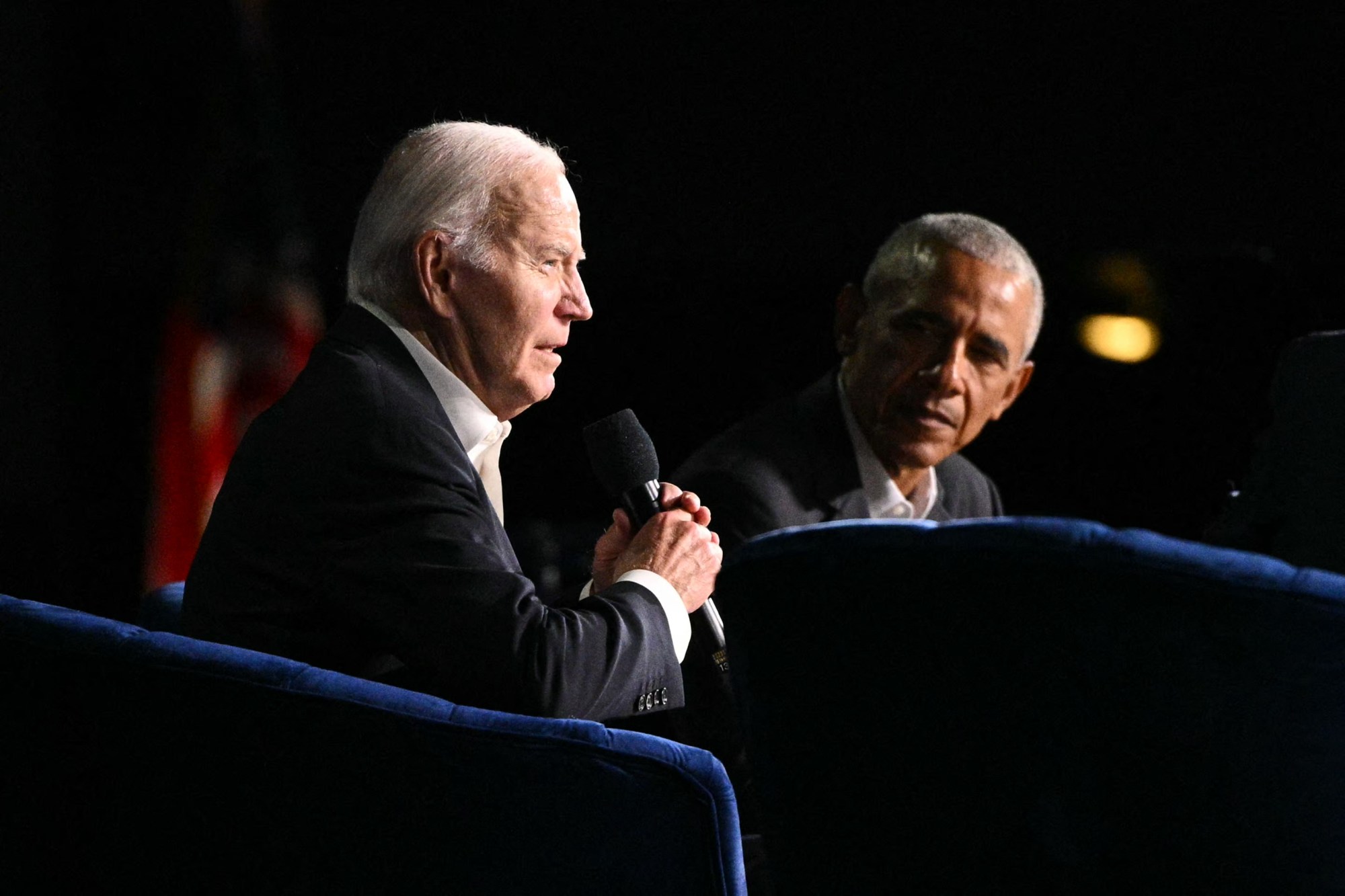
Over the course of the next several hours, Biden made calls to about 50 of his most important supporters and allies, the people who he believed had made it possible for him to become president of the United States. He called some of his closest friends in Congress, labor leaders, a few governors, and others who had been with him through good times and bad. He called them all to say thank you and, in most of the conversations, to put in a good word for Kamala Harris. One person he didn’t call, and, in fact, would not talk to for weeks: Barack Obama, the man he had served for eight years as vice president. Obama had been trying to get in touch with Biden for about two weeks, but his calls had not been returned. Obama reached out again after Biden suspended his campaign, but the two men would not end up speaking until shortly before the Democratic National Convention four weeks later.
Not every Democratic leader was thrilled that Harris was all but guaranteed to be the nominee, but most breathed an enormous sigh of relief that the party would not be going into what many believed to be the most important election of their lifetime with an 81-year-old man whose faculties could take a turn for the worse at any time. In a matter of minutes, a race that many Democrats had privately accepted as a fait accompli had become winnable again.
Donald Trump came to the same realization—and he was furious. In a series of statements posted on social media throughout the night on Sunday, he claimed Biden never had COVID, accused the Democratic Party of fraud, and—despite inspiring a mob to attempt to stop the transfer of power four years earlier—said the Democrats were the true threat to democracy.
“The Democrats pick a candidate, Crooked Joe Biden, he loses the Debate badly, then panics, and makes mistake after mistake, is told he can’t win, and decide they will pick another candidate, probably Harris,” he wrote. “They stole the race from Biden after he won it in the primaries—A First! These people are the real THREAT TO DEMOCRACY!”

